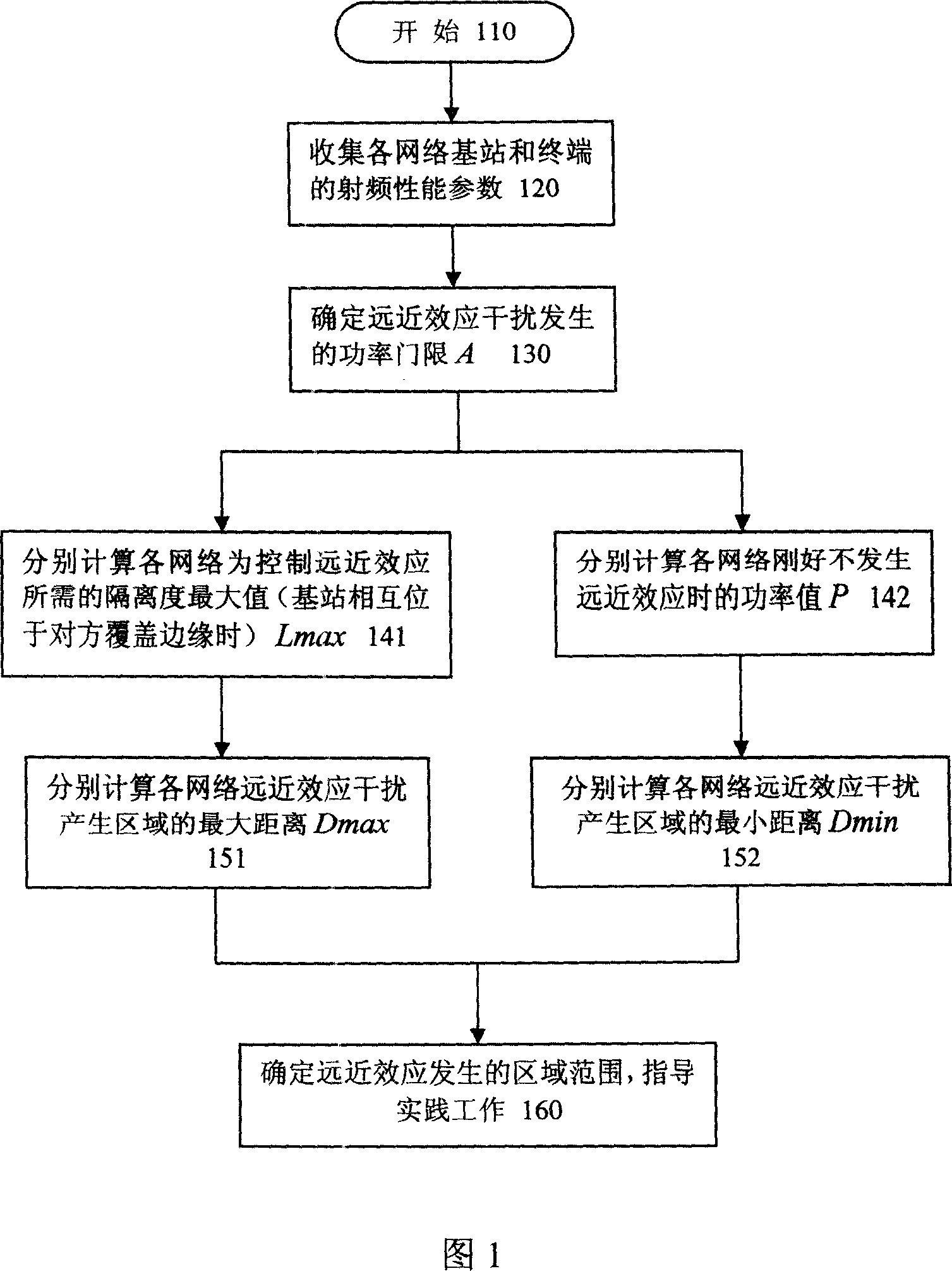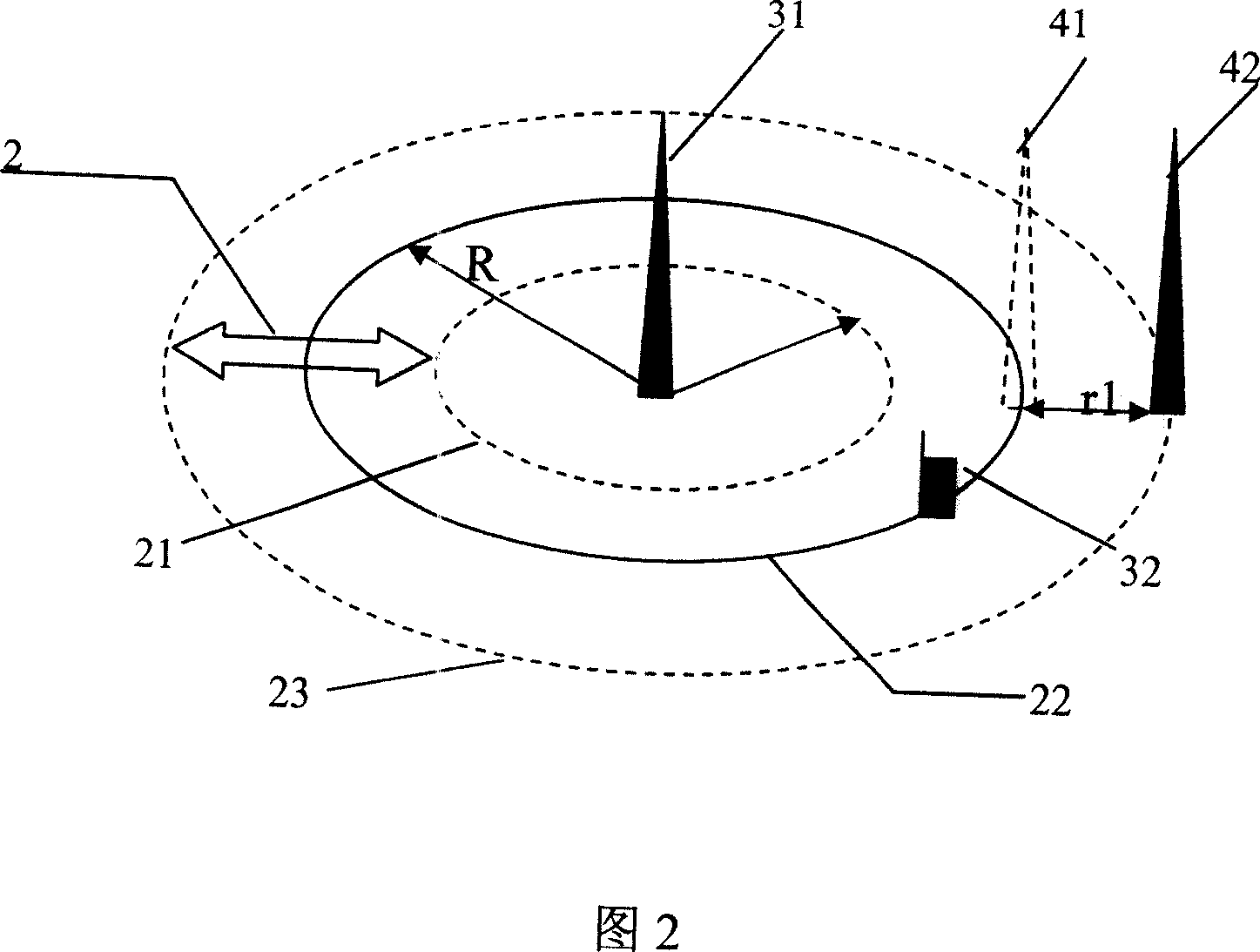Multisystem coexisted base station site-selecting method
A multi-system and base station technology, which is applied in the direction of selection device, radio/inductive link selection arrangement, advanced technology, etc., can solve the problems of increased investment cost of new network, inconvenient and flexible re-planning of network, and increase of frequency interval between networks. Achieve the effects of reducing the impact of near-far effects, avoiding interference from near-far effects, and reducing investment costs
- Summary
- Abstract
- Description
- Claims
- Application Information
AI Technical Summary
Problems solved by technology
Method used
Image
Examples
Embodiment Construction
[0034] The main idea of the present invention is to analyze the near-far effect between networks from the perspective of stray interference. When the base stations between the networks are located at the coverage edge of each other's base station, the interference caused by the near-far effect has the greatest influence. When the distance between base stations of different networks increases Or when it is reduced, the interference effect will be reduced, and the distance increases or decreases to a certain extent, and the interference effect of the near-far effect can be ignored.
[0035] The present invention uses known network basic parameters to calculate the maximum and minimum distances, and determines the area affected by the near-far effect, thereby guiding the planning of a new network or analyzing the near-far effect interference between existing networks. The specific process is shown in Figure 1, including the following steps:
[0036] 110) start;
[0037] 120) c...
PUM
 Login to View More
Login to View More Abstract
Description
Claims
Application Information
 Login to View More
Login to View More - R&D
- Intellectual Property
- Life Sciences
- Materials
- Tech Scout
- Unparalleled Data Quality
- Higher Quality Content
- 60% Fewer Hallucinations
Browse by: Latest US Patents, China's latest patents, Technical Efficacy Thesaurus, Application Domain, Technology Topic, Popular Technical Reports.
© 2025 PatSnap. All rights reserved.Legal|Privacy policy|Modern Slavery Act Transparency Statement|Sitemap|About US| Contact US: help@patsnap.com



